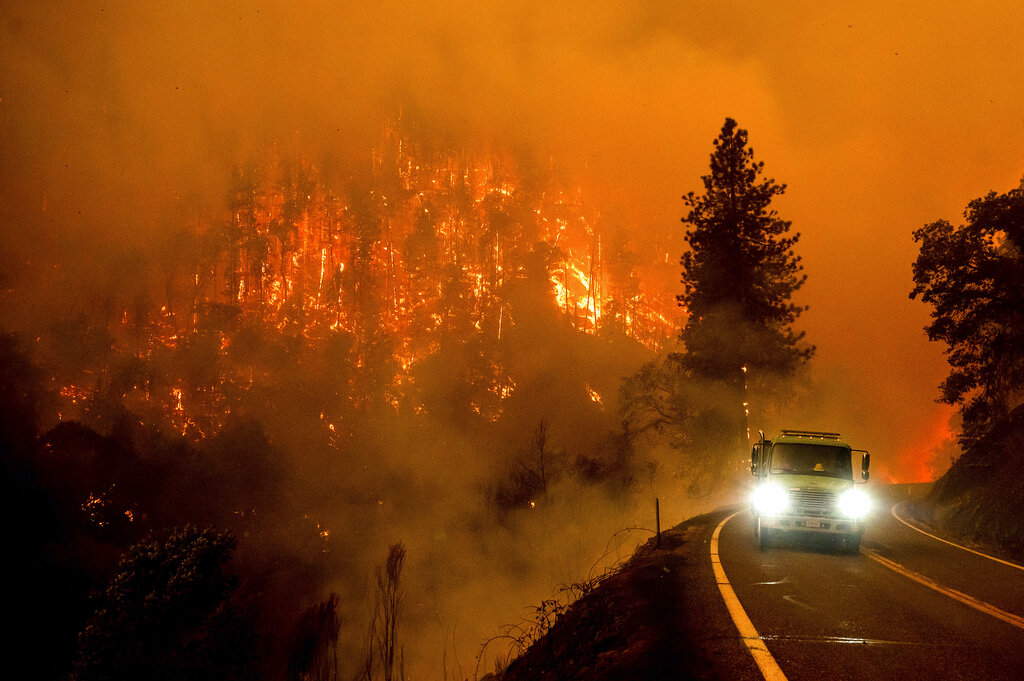
YREKA, Calif. (AP) — Major wildfires in California and Montana grew substantially as firefighters protected remote communities on Sunday as hot, windy weather across the tinder-dry U.S. West created the potential for even more spread.
The McKinney Fire was burning out of control in Northern California’s Klamath National Forest as erratic lightning storms swept through the region just south of the Oregon state line, said U.S. Forest Service spokesperson Adrienne Freeman.
“The fuel beds are so dry and they can just erupt from that lightning,” she said. “These thunder cells come with gusty erratic winds that can blow fire in every direction.”
The blaze exploded in size to more than 80 square miles (207 square km) just two days after erupting in a largely unpopulated area of Siskiyou County, according to a Sunday incident report. The cause was under investigation.
A second, smaller fire just to the west that was sparked by dry lightning Saturday threatened the tiny town of Seiad, Freeman said. About 400 structures were under threat from the two California fires.
In northwest Montana, a blaze sparked in grasslands near the town of Elmo grew to more than 11 square miles (28 square km) after advancing into forest. Temperatures in western Montana could spike to 96 degrees (36 Celsius) by Sunday afternoon with strong winds, the National Weather Service said.
A portion of Highway 28 between Hot Springs and Elmo was closed because of the thick smoke, according to the Montana Department of Transportation.
Roughly 200 miles (320 km) to the south, Idaho residents were under evacuation orders Saturday as the Moose Fire in the Salmon-Challis National Forest charred more than 67.5 square miles (174.8 square km) in timbered land near the town of Salmon. It was 17% contained Saturday.
California Gov. Gavin Newsom declared a state of emergency Saturday as the McKinney Fire intensified. The proclamation allows Newsom more flexibility to make emergency response and recovery effort decisions and access federal aid.
California law enforcement knocked on doors in the towns of Yreka and Fort Jones to urge residents to get out and safely evacuate their livestock onto trailers. Automated calls were being sent to land phone lines as well because there were areas without cell phone service.
Scientists say climate change has made the West warmer and drier in the past 30 years and will continue to make weather more extreme and wildfires more frequent and destructive.
The Pacific Coast Trail Association urged hikers to get to the nearest town while the U.S. Forest Service closed a 110-mile (177-km) section of the trail from the Etna Summit to the Mt. Ashland Campground in southern Oregon.
In Hawaii, the Maui County Emergency Management Agency said a brush fire was 90% contained but a red flag warning was in effect for much of Sunday.
Copyright 2022. The Associated Press. All rights reserved.
The remainder of this article is available in its entirety at CBN